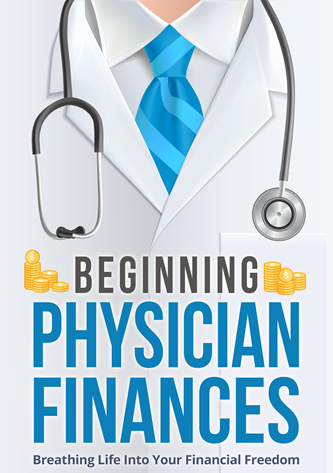Starting Out
Starting out with your money
I’d like to begin addressing those physicians who are starting out making money in their career after residency by sharing information and opinions that I hope to be of value to you. What I strongly desire to do at Physicians In Finance is to try to change the thought process of physicians when it comes to money. Dealing with finances at the beginning is also dealt with in this money article. Learning to adapt the proper habits that allow for the creation of wealth from the start is so important, and it will really give you a tremendous advantage.
As you move into that phase of your career when all of a sudden your monthly income increases, you should immediately start to think, “I need to control my speed here.” The emotions can run wild and thoughts of material things can become all consuming. If you can control your emotions and move forward logically with a thought process of “saving” first before spending, you will be light years ahead in the quest for wealth building.
Some quick thoughts about this:
1. You are making more money than you have ever made before, so remember, you were living just fine on your smaller salary a month ago. So, even a gradual change is still a big change. Adjusting your lifestyle by a smaller scale is still very acceptable and pleasant. It’s just less of an upscale than initial plans may have been.
2. You are building a business (not just your career as a physician, but your business of building your wealth), and you can’t build a business if you spend all the money right away. Most successful businesses realize that it takes at least 7 years to become profitable. It may sound out of place to apply this concept to the idea of your income and your own wealth building, but it really is the same idea. A business needs to be profitable to be a success, and you need to be profitable to build wealth.
Think about this. No one can take away the money you save after taxes. If you don’t spend it or lose it somehow (perhaps on a bad investment), no one can take your money away. It certainly can’t be taxed away. Just think about that for a while and remember it.
So, a conservative nature with money needs to be in play here when you begin.
Be careful of who you trust with your money. In my opinion, you need to be in control of your money. I don’t think it’s ever a good thing to blindly hand money over to someone and ask them to invest it for you. I’ll be discussing this more in articles on Physicians In Finance.
You need to get control of your liabilities from the start. Determine what your overall debt is and make a plan of how debt repayment will fit into your regular cash flow. I do recommend that you identify in your liabilities what is good debt and what is bad debt. Clearly, the focus needs to be placed on the bad debt (which in general is your consumer debt). Home mortgage liability is more of a good debt, whereas car loans are more towards bad debt since you are dealing with a depreciating asset. So, your plan should be dealing with the money liabilities that act more as parasites than helpful hands.
In regards to credit these days, having a good credit score appears to be even more important in getting a mortgage loan than ever before. We can certainly thank the financial crisis of 2008 for that. Unfortunately, the key factor in credit score is a strong recent credit history which means in most cases that you have a history of good credit card management (i.e. you make regular monthly payments, don’t miss payments, don’t carry a balance greater than 30% of your credit limit, etc.) I say unfortunately because the majority of individuals who carry multiple credit cards aren’t this good with their credit card debt, and it is also almost counterintuitive to recommend using credit cards instead of money. There is, however, a way to use credit cards to pay for normal monthly bills, and this will help to build your credit without creating bad debt. But, if you want to be able to have an easier time qualifying for home loan, you need to have a solid credit score.
Strong money management is key in regards to dealing with debt
Yet, if you are going to become a good money manager and wealth builder, you have to become a strong manager of your debt. If you start out by becoming proficient in this area, will save you some headaches and prepare you rather nicely for future money management.
So, these points are here for the beginning money stages, and I hope to continue to provide information that will be of value from this point forward in Physicians In Finance.



